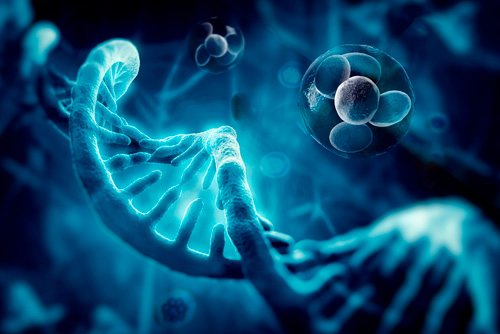
This involves extracting a cell from the embryo and then performing genetic diagnosis using FISH or PCR techniques. With this process, it's possible to rule out 95% of the chromosomal diseases that affect humans, such as Down Syndrome, Patau, Edwards, etc. These molecular biology techniques are highly complex.
Indicated for:
- Women of advanced age with good follicular endowment.
- Women with more than 2 miscarriages.
- Couples who may be carriers of a preventable genetic mutation.
PGS (Preimplantation Genetic Screening) for chromosomal abnormalities is an embryonic genetic analysis conducted during IVF treatment for the detection of abnormalities in the number of chromosomes (aneuploidies).
Alterations in the chromosomal endowment can lead to implantation failures in assisted reproduction cycles, spontaneous miscarriages, and chromosomal abnormalities in newborns.
PGS (Preimplantation Genetic Screening) for chromosomal abnormalities allows the selection of chromosomally normal embryos from among all the evolving embryos of a patient, which increases their reproductive possibilities.
Chromosomally normal embryos have a higher likelihood of developing properly and resulting in a healthy child.
PGS (Preimplantation Genetic Screening) for chromosomal abnormalities provides a comprehensive analysis of the 23 pairs of chromosomes: the autosomes and the sex chromosomes (X and Y). Normally, there are 23 pairs of chromosomes in each human cell. A change in the number of chromosomes is known as aneuploidy.
Aneuploidies account for the vast majority of spontaneous abortions and can lead to congenital defects and intellectual disabilities in newborns. Most types of aneuploidy are not compatible with life. The most common syndromes caused by non-sex chromosome aneuploidies are Down syndrome, Edwards syndrome, and Patau syndrome. Aneuploidy is generally not inherited and can affect any chromosome; however, the likelihood of an embryo suffering a chromosomal abnormality increases with the mother's age.